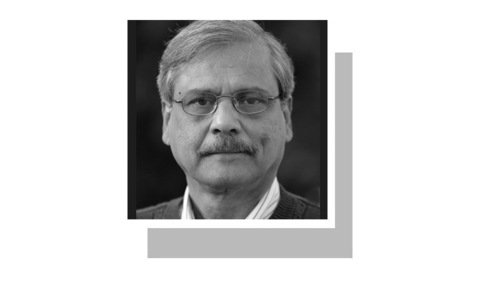PESHAWAR, Nov 16: Noted Pashto writer and poet Professor Mohammad Azam Azam breathed his last at the age of 72.
He will be laid to rest at his ancestral town of Rajar in Charsadda district today (Saturday).
Professor Azam’s friends and colleagues in literary circles have offered condolences on loss of a learned educationist, playwright and poet who have been rewarded Tamghaa-i-Imtiaz, a civil award, for his performance.
“Professor Azam led a full life. Sittings with him always increased my knowledge,” said Pashto Academy Director Dr Salma Shaheen.
Ms Shaheen, who is also famous Pashto poet, said Professor Azam had command of Pashto literary techniques and proverbs and was famous for ghazals, which had symbols and rhythm.
“He was a man of knowledge and like any creative person always remained restless,” she said.
Professor Azam left behind a widow, three daughters and a son.
Born on December 21, 1940 in Rajar village, he did his PhD in Pashto Literature and began career as a lecturer in historic Islamia College, Peshawar in 1963.
He also served as the chairman of Pashto Department at University of Peshawar and Dean of Faculty of Oriental Languages.
After retirement from University of Peshawar in 2000, he joined Academy of Letters as the regional director of Peshawar in August 2006.
Professor Azam, author of 11 books, had rendered meritorious services to Pashto language and literature for 45 years.
He was a writer known for unique style and for having introduced and contributed to modern literary trends both in subjects and style in Pashto prose and poetry.
Among his books are Pashto Afsana, Tahqeeq Auo Tanqeed, Pashto Adab Ke Kerdarnigaaree, Lashey, Rehman Baba Da Ulas Shair, Pukhtanee Romanoonah, Da Aqidat Guloona, and Andazoonah.
Radio Pakistan, Peshawar and PTV, Peshawar Centre aired more than 500 songs and ghazals of Professor Azam. They are still popular with the people. Professor Azam is considered a trendsetter in Pashto drama on both radio and television. He is known for his Pashto plays that portrayed a true picture of Pashtun culture and society.
At the start of PTV, Peshawar Centre in 1974, he wrote the first-ever Pashto TV serial ‘Rukey Laarey’ (The lost paths). Another popular play ‘Namoos’ (Honour) in both its Pashto and Urdu versions are also very popular.
As for his poetry, Professor Azam claimed to be inspired by the Progressive Writers’ Movement.












































Dear visitor, the comments section is undergoing an overhaul and will return soon.